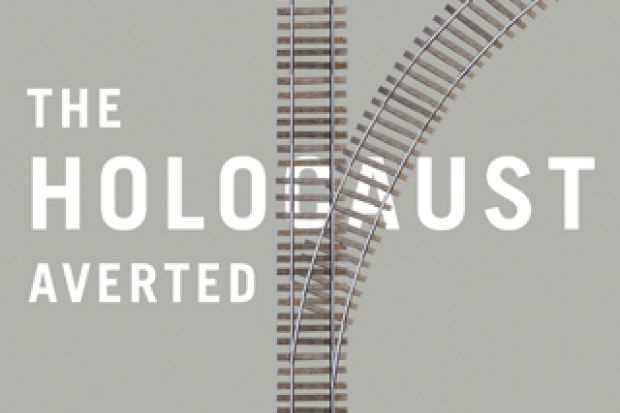Philip Roth did it and so did Quentin Tarantino. In his 2004 novel The Plot Against America, Roth projected an alternative past in which pro-Nazi sentiment gripped the US, catapulting Charles Lindbergh to the White House and American Jews to relocation camps. In his 2009 film Inglourious Basterds, Tarantino asked moviegoers to suspend everything they knew about actual events as he depicted the successful assassination of Adolf Hitler by a group of Jewish commandos.
If Roth and Tarantino could rewrite the past, why not allow the historian – in this case Yeshiva University scholar Jeffrey Gurock – to play with facts and offer, with many of the trappings of scholarship, an imagined history? This book’s conceit pivots on a “could have” or a “might have” as it recasts the events that transpired in Munich in September 1938. In the meeting that took place in the Bavarian city, with Hitler and Mussolini on one side and Britain’s Neville Chamberlain and France’s Édouard Daladier on the other, the fate of Czechoslovakia was decided. Chamberlain and Daladier agreed to Germany’s request to annex those areas of the newly cobbled together nation that contained substantial German populations. France and England hoped that giving Germany the Sudetenland, itself a recently coined term, would deter or delay the outbreak of a war like the one that ended in 1918, and with the consequences of which the continent still grappled.
The Munich conference, subsequently considered synonymous with appeasement and the unwillingness of democracies to challenge totalitarian bullies, has long served as a rallying cry in US politics and a justification for military action. But in The Holocaust Averted, the September 1938 gathering in Munich ended very differently. At Gurock’s Munich, Chamberlain refused to give in to fear of war or the recognition that the UK had few arms or men in uniform. He stood up to Hitler, and refused to hand over substantial chunks of Czechoslovakia to Germany, preferring to go into battle rather than embolden the dictator of Berlin. Britain and France eschewed “peace in our time” and immediately took up arms to fight Germany, a decision that, according to this history as fantasy, set an entire course of events in motion, starting with the “fact” that Germany did not invade Poland the following year, the 6 million Jews who perished in the Holocaust, whether by disease, starvation, gassing or bullets, instead lived, and from their lives, as opposed to their deaths, the rest of Jewish and world history took its shape. Gurock spins his fantasy well into the 1960s, on the premise that without Munich then no Holocaust and without the Holocaust all subsequent events would have been utterly different.
The problem with The Holocaust Averted, as with all works that hinge on “what if”, is that the historian, the servant of evidence, has no obligation to construct an analysis that adheres to the facts. The historian as fabulist has no standard as to what might have been reasonable and what not. The counter-historian need not be troubled by evidence, and so any scenario can be considered as plausible as any other. Roth and Tarantino had none of the obligations of a historian. They had licence. Gurock does not.
The Holocaust Averted: An Alternate History of American Jewry, 1938-1967
By Jeffrey Gurock
Rutgers University Press, 320pp, £29.95
ISBN 9780813572376 and 2390 (e-book)
Published 30 April 2015
Register to continue
Why register?
- Registration is free and only takes a moment
- Once registered, you can read 3 articles a month
- Sign up for our newsletter
Subscribe
Or subscribe for unlimited access to:
- Unlimited access to news, views, insights & reviews
- Digital editions
- Digital access to THE’s university and college rankings analysis
Already registered or a current subscriber? Login





